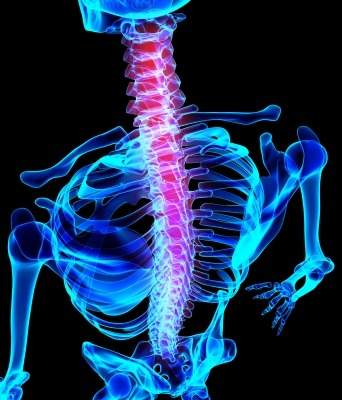DiscGenics has secured approval from the Japanese Pharmaceuticals and Medical Devices Agency (PMDA) to conduct Clinical Trial Notification (CTN) application for IDCT, an allogeneic injectable disc cell therapy for the treatment of degenerative disc disease (DDD).

Image: DiscGenics secures approval from Japanese PMDA to begin clinical study of non-surgical degenerative disc disease treatment. Photo: Courtesy of yodiyim at FreeDigitalPhotos.net.
IDCT is available off-the-shelf and offers a non-surgical therapeutic option for patients suffering from DDD. The CTN approval allows DiscGenics to advance IDCT into clinical studies in Japan.
DiscGenics intends to initiate a prospective, double-blinded, sham-controlled, multicenter clinical study to evaluate the safety and preliminary efficacy of IDCT in Japanese patients with painful, single-level lumbar DDD. The 38-patient trial is expected to begin enrolling in Japan in the first half of 2019.
Tokai University School of Medicine, Department of Orthopaedic Surgery Associate Professor and study’s principal investigator Daisuke Sakai said: “I am excited to be participating in the clinical evaluation of IDCT as a potential cell therapy to treat degenerative disc disease. I recently participated in a preclinical study of IDCT’s human Discogenic Cells in a canine disc degeneration model here in Japan, and was pleased to observe the cells’ ability to stop disc height degeneration while improving the structure of the intervertebral disc.
“If similar results can be demonstrated in human subjects, the result could be reduced pain and disability associated with one of the most common causes of chronic low back pain.”
Discogenic Cells are highly specialized progenitor cells that have been engineered from donated adult human intervertebral disc tissue, and are the therapeutic engine behind IDCT. A research article summarizing results from Dr. Sakai’s study of Discogenic Cells in the canine disc degeneration model was recently published in the Journal of Orthopaedic Research Spine.
DDD is a painful, chronic and progressive disease that is characterized by inflammation and breakdown of extracellular matrix within the intervertebral disc. The condition is estimated to affect more than one million people, including 200,000 patients needing surgical intervention every year in Japan. Current treatment options for DDD are limited to physical rehabilitation programs and pain management, including opioids, in the earlier stages. In the more advanced stages, oftentimes a patient’s only option is surgical intervention to remove the painful disc(s), fuse two or more vertebral bones together and/or replace bone or tissue altogether. However, back surgeries often have limited success and may result in subsequent adjacent level degeneration.
DiscGenics is leveraging the accelerated regenerative medicine pathway created by the Japanese Pharmaceuticals and Medical Devices Act (a revision of the Pharmaceutical Affairs Act) to pursue regulatory approval of IDCT in Japan, and has been working closely with the PMDA through a series of consultations to satisfy all requirements for trial design and materials safety.
DiscGenics CEO and board of directors chairman Flagg Flanagan said: “We are thrilled to have received the go-ahead from the PMDA to begin clinical study of IDCT in Japan. DDD is a debilitating condition and we believe IDCT has the potential to offer a revolutionary and possibly curative solution for the millions who suffer from it.
“Importantly, Japan represents the third largest healthcare market in the world, affording DiscGenics the potential opportunity to help many, many people who are currently enduring chronic low back pain with no end in sight.”
DiscGenics is also conducting an ongoing Phase I/II prospective, randomized double-blinded, vehicle- and placebo-controlled, multicenter clinical study of IDCT in the U.S. among subjects with single-level, symptomatic lumbar DDD. Through this study, IDCT is being evaluated under an investigational new drug (IND) allowance by the US Food and Drug Administration (FDA) and will be regulated as a drug-biologic through a therapeutics biologics application (BLA).
Source: Company Press Release
